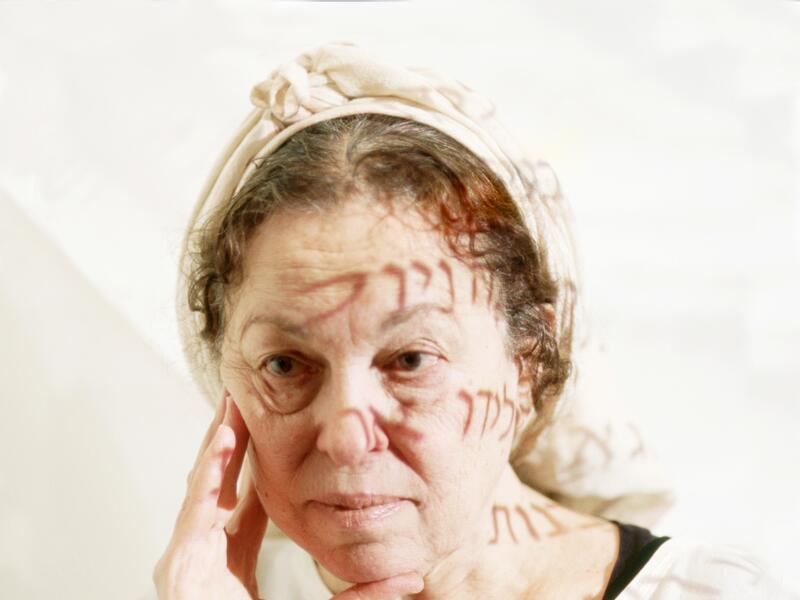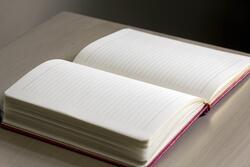Wrestling with "Ruach" (God)
I recently heard this joke:
A Jewish man found out that the best school in town was a Catholic school. So, he decided to send his son there. Every day, the son would come home from school and the father would ask him what he had learned that day. All was well until one day the son explained that they’d learned about the Father, the Son, and the Holy Ghost. The boy’s father grew furious, grabbed him by the shoulders, and said, “David! That’s ridiculous! There’s only one God, and we don’t believe in Him!”
As a Jewish person with a shaky belief in any kind of God, this joke really resonated with me. My Jewish education taught me that important Jewish prayers, such as the Shema, indicate the existence of one God, with words that translate to “the Lord is One.” But, beyond that, my Rabbis and morim have always left the interpretation of God and Godliness up to the reader.
With limitless possible interpretations, I tend to have more questions than answers when it comes to God. Some days I wake up sure that I’m an atheist. And while I hear the words of the Shema echoing in my head, and respect my fellow Jews who believe those words, monotheism doesn't feel central to the way I practice Judaism on those days. I don’t feel any less Jewish; I simply find other tenets of Judaism to be more meaningful and important to me when I’m in that frame of mind.
Other days, I feel more convinced. Surely there must have been some guiding force in order for my Jewish ancestors to endure and survive all that they did, I think. Surely there must be some spirit out there making children laugh and causing medical miracles. But soon enough, my brain allows pessimism to sink in. I think about the oppression, discrimination, and genocide in our world, and I either develop a hatred for any existing God, or rule out God’s existence all together.
Tikkun olam, which translates as “repairing the world,” is the focus of my Judaism and Jewish values. So I cannot help but wonder: why would a God who orders us to follow the mitzvot and pursue Tikkun olam create so much suffering in the first place? Perhaps to teach us how to define our own morals? Or perhaps God does not create suffering at all, and has not been active in day to day happenings since the beginning of creation? Or perhaps there is some higher reason for suffering that a human being cannot grasp?
Being part of Generation Z, I decided to turn to the only logical place with my questions: the internet. And I was greeted by dozens of drawings and descriptions of an old white man in the sky with a long grey beard, answering our prayers. If that’s your belief, you’re welcome to maintain it. But for me, that image makes God seem rather unappealing, patriarchal, and ultimately nonexistent.
Feeling overwhelmed and disheartened, I decided to ask some Jewish friends and family about their belief (or non-belief) in God. I asked questions like, “Do you believe in a God?”, “If so, how do you picture God?”, “Do you ever feel uncertain about your belief or non-belief in God?”, and “What role (if any) do you believe God plays in your life?”. Upon asking these questions, I received a huge diversity of answers. I poured over this sacred wealth of text message enlightenment, searching for universal truths; but the only commonality I could find between most of the responses was that each one was littered with even more unanswered questions.
Although perhaps I didn’t get the clarity I’d hoped for in those replies, I certainly felt less alone in my uncertainty. Even my peers who expressed an unwavering belief in a God still posed questions about how exactly that God interacts with the world. One friend of mine told me, “I don’t know if I believe in a traditional higher power, but I do believe that there is something special about nature and humanity in nature. There is holiness in humanity and God to me is that light in all people.” Perhaps you identify with his words. Perhaps you identify with a more actively involved vision of the divine. Perhaps you identify with a mix or something else entirely. I’m here to tell you, it’s okay. Whatever it is, it’s not weird, it’s not shameful, and it’s certainly not un-Jewish.
After all, in a religion that values debate and commentary enough to make an entire holy book of it (Tanakh), what could be more Jewish than struggling with the idea of God? It is essential to Judaism to question and adapt our traditions and faith. In fact, many of our texts, like Mishnah, outline various arguments between rabbis, and leave it to the readers to form their own opinions. The word “Israel” even means “to struggle with God.”
So, that’s what I’m doing. I’m struggling, experimenting, thinking, and most of all, questioning. As part of this process, I started to replace the word melech, meaning King, with ruach, meaning spirit, in my prayers. To some, it may feel unholy to alter our Hebrew prayers, and that is understandable. But to me, this change was a source of great comfort. I have freed myself from the "old man" image of God, and while I’m still wrestling with what kind of spirit I believe in—if I believe in any—I now feel open to that wrestling.
So, as an agnostic (and rather confused) Jew myself, I don’t have answers. In fact, I think providing answers would be a very un-Jewish way to end this blog post.
But I ask for a few things. First, that we allow ourselves to struggle. To struggle with our identities, our beliefs, and our image or non-image of God. Second, I ask that we do not judge the Jewishness of others based on whether, or in what way, they believe in God. There is no such thing as a “fake Jew,” because it's nobody’s business other than their own to define their Judaism.
This piece was written as part of JWA’s Rising Voices Fellowship.






